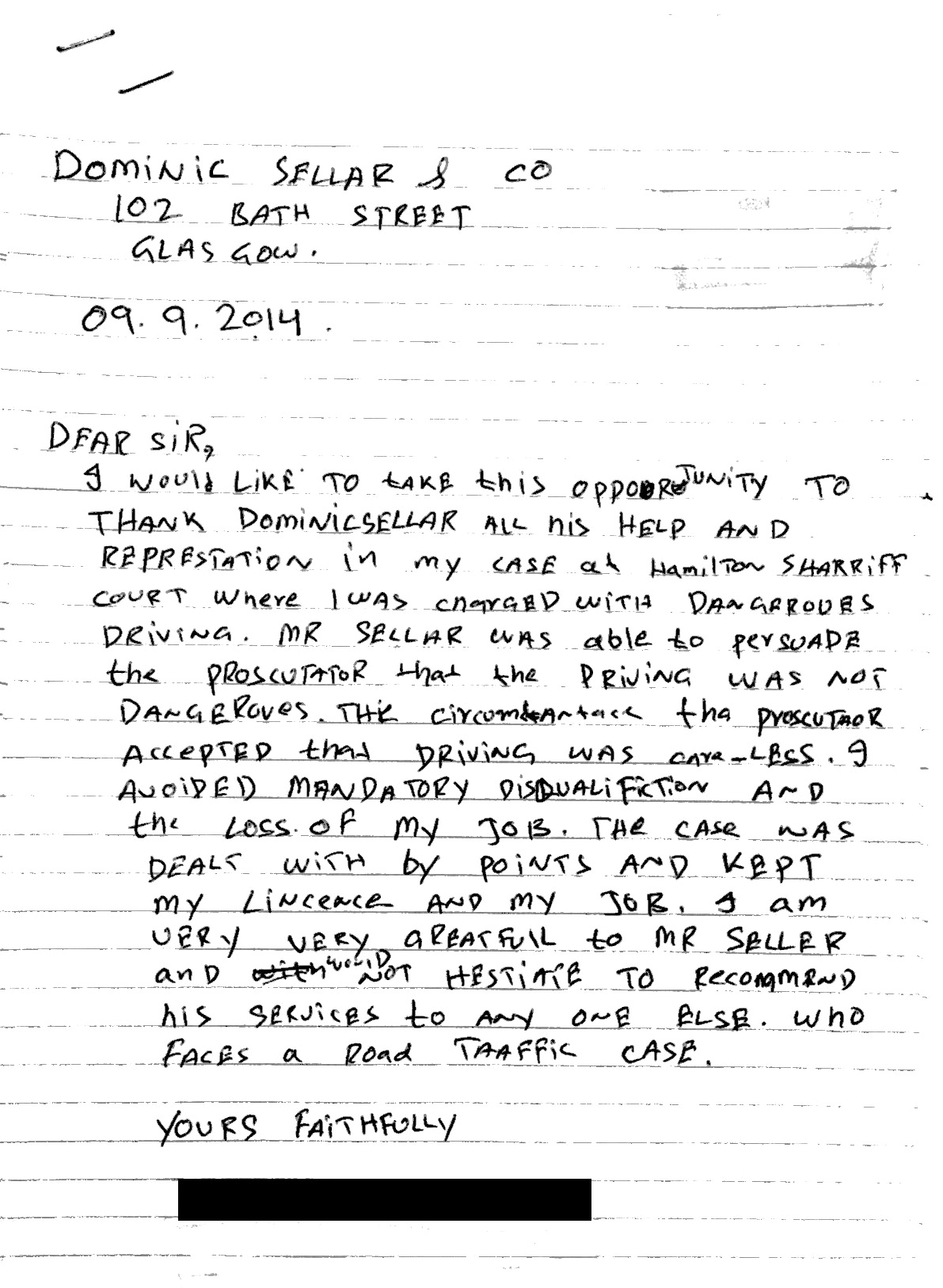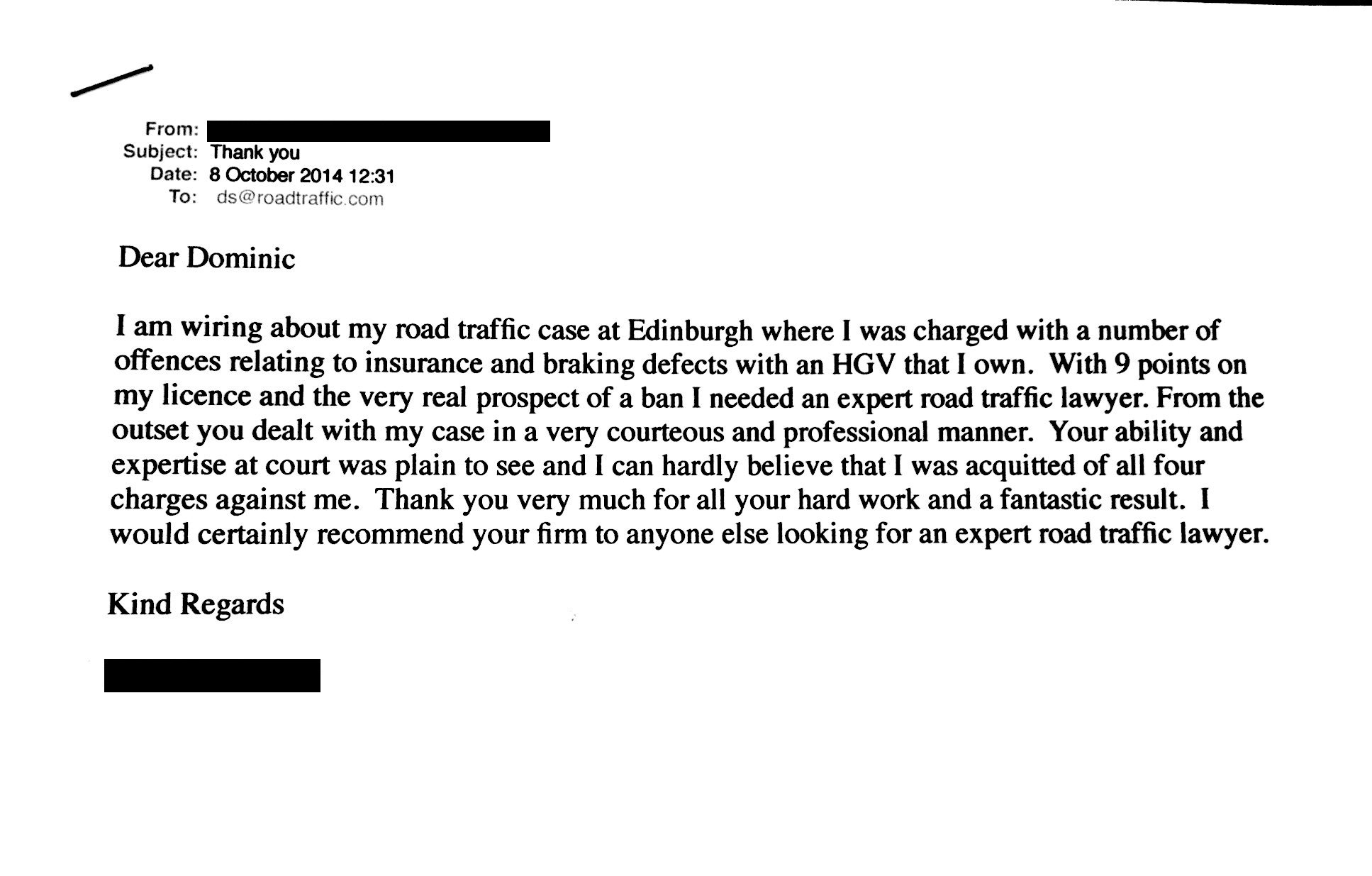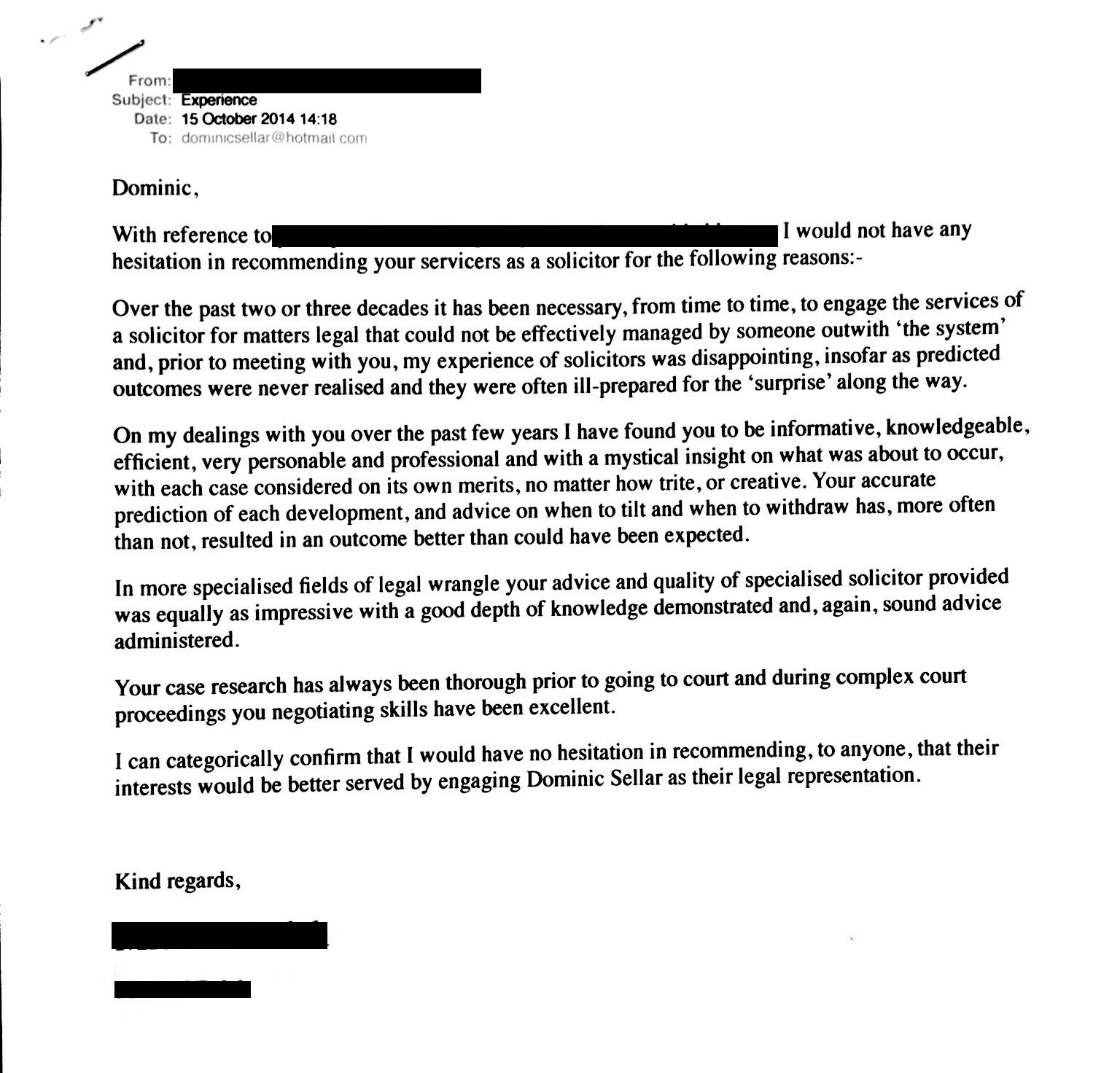Sections 40A to 42 Road Traffic Act 1988
Using a motor vehicle that is defective in some way can amount to an offence under the Construction & Use Regulations. This vast area of the law sets the standards that must be met in relation to the construction, maintenance and use of all motor vehicles.
In short the regulations are concerned with the condition of the vehicle, the way in which it is used and any modifications which make it unsafe or potentially unsafe.
Construction & Use Offences
There are hundreds of offences created by the Construction & Use Regulations. Typical examples include driving a vehicle with:
- Too many passengers
- Defective tyres
- Defective brakes or steering
- Defective exhaust system
- Insecure or unsafe loads
Penalties
Penalties for construction and use offences vary and include:
- Fines of up to £5000 depending on the type of vehicle, plus
- 3 Penalty Points or
- Discretionary Disqualification
The vast majority of these offences are dealt with by way of Fixed Penalty. If a fixed penalty is not offered by the police, or refused by the driver, court proceedings must commence within 6 months from the date of the offence. It is not uncommon for drivers to be charged with multiple offences under these regulations.
Construction & Use Regulations
The rules and regulations that apply to Construction & Use offences are often extremely complex and technical. This is clearly illustrated by some of the regulations that apply to tyres:
Tyre Regulations:
The regulations on tyres vary depending on the type of vehicle being used and the purpose to which it is being put. In general, the regulations require that tyres have a minimum of 1.6mm of tread depth over the centre three quarters of the tyre that would normally have contact with the road. Some vehicles only require 1mm of tread depth.
The regulations also cover suitable inflation requirements for tyres and mixing different tyre types on the same vehicle. The general condition of tyres with reference to lumps, bumps and tears, together with other features are also detailed in the regulations. Some motor vehicles are exempt.
Vehicle Defect Rectification Scheme
If a driver is stopped by the police for a minor vehicle defect, such as a faulty light, he can be offered an opportunity to rectify the problem under the Vehicle Defect Rectification Scheme. Under the scheme the driver is given the chance to rectify the defect and avoid prosecution. The scheme is voluntary and usually allows a driver 14 days within which to fix the problem. If the problem is not fixed the driver will face prosecution and the possibility of 3 penalty points and a fine.
Defences
Most prosecutions proceed on the basis of police giving evidence about the alleged defect or other contravention, such as driving with an insecure load or too many passengers. In a large number of cases the evidence will be relatively straightforward and the defect or danger will be obvious. In other cases, however, the police evidence will be highly subjective and open to question. It should not be assumed that the police have the necessary expertise to give evidence about technical defects and the inherent dangers. Nor should it be assumed that the evidence of the police cannot be challenged. A factual defence of denial is always open to a driver who disputes the allegation that his vehicle does not meet the required standard.
Nonetheless, it is important to note that ignorance of a regulation or a defect is not a defence. These offences can arise even where the driver was unaware of the defect. Therefore, if a driver is charged with using a vehicle with defective lights it is not a defence that he did not know that the lights were not working. A driver is expected to check all is in order with a vehicle before setting off.
Avoiding Points & Disqualification
If a driver is convicted or accepts that he is guilty of a Construction & Use offence he may avoid penalty points and disqualification if he can show that he did not know, nor had he reasonable cause to suspect, that the offence in question was being committed. The onus is on the defence to establish this requirement on the balance of probabilities.

How we can help
Construction & Use Regulations cover a wide variety of offences, which are often complex and technical. Our experience and expertise in this area will quickly determine the merits of your case and all other options that might be available to you. Early expert advice can save time and expense. We can prepare your case, arrange for supporting documentation and make forceful representations at court. We pride ourselves in offering a service that is friendly, honest and reliable. For free advice that is without pressure or obligation simply contact us:
Call Now or Request a Callback
Independent Reviews
Go online or have a look at the reviews below to see why we’re the right solicitors for you.
Trustpilot
Google
Facebook
Client Letters
-
I honestly couldn’t praise Dominic enough!!
I honestly couldn’t praise Dominic and this fantastic company enough. I had direct communication from Dominic after I was recommended to acquire their services. Dominic was first class from the off, kept me updated through out and was an absolute gentleman. So my advice would be if you require any assistance in terms road traffic […]
-
Excellent lawyers firm.
I had a drink driving charge and speeding charge. I found Dominic Sellar & Co online. Dominic discussed my case with no obligation telephone consultation and advised me of what lay ahead. I decided to use his support & services.Dominic was not able to attend court on the day of my case but his partner […]
-
Dominic Sellar & Co
Dominic Sellar & Co. left a lasting impression with their remarkable and thorough approach. Their meticulous attention to detail and commitment to excellence were evident throughout the entire process. The professionalism and expertise demonstrated by the team were truly commendable, making the experience both impressive and reassuring.
-
Speeding Driving Charge – 1st Class Service
Recently hired Dominic for a speeding charge I received. My experience was first class from start to finish upfront cost no hidden charges and communication from Dominic at all times was amazing only a phonecall away.
-
Multiple Charges
I was facing multiple charges and Dominic sorted Everything out. I’m absolutely delighted by the outcome. And would recommend him to anyone needing a traffic lawyer.
-
Honest and trustworthy service
facing a very difficult situation of a lengthy ban Dominic managed to fight my corner which resulted in a more manageable short term ban. What I liked about Dominic was that he was very straight talking and was very honest. Wouldn’t hesitate to recommend him.
-
Dominic was great from the start
Dominic was great from the start, advice and possible outcomes. Handled my case with minimum fuss. The outcome was better than I could have hoped for. Hopefully I will not need you again, but should I face the same predicament I wouldn’t go anywhere else. Highly recommend. Thank you again.
-

Mr SF, Glasgow
“I would like to take this opportunity to thank Dominic Sellar for all his help and representation in my case at Hamilton Sheriff Court where I was charged with Dangerous Driving. Mr Sellar was able to persuade the prosecutor that the driving was not dangerous…the Prosecutor accepted that the driving was careless. I avoided a […]
-

Mr K, Manchester. Construction & Use Case
“I am writing about my road traffic case at Edinburgh, where I was charged with a number of offences relating to insurance and braking defects with an HGV that I own. With 9 points on my licence and the very real prospect of a ban I needed an expert road traffic lawyer. From the outset […]
-

Mr BM, Aberdeen
“…I would not have any hesitation in recommending your services as a solicitor…I have found you to be informative, knowledgeable, efficient, very personable and professional and with a mystical insight on what was about to occur, with each case considered on its own merits, no matter how trite, or creative. Your accurate prediction of each […]
